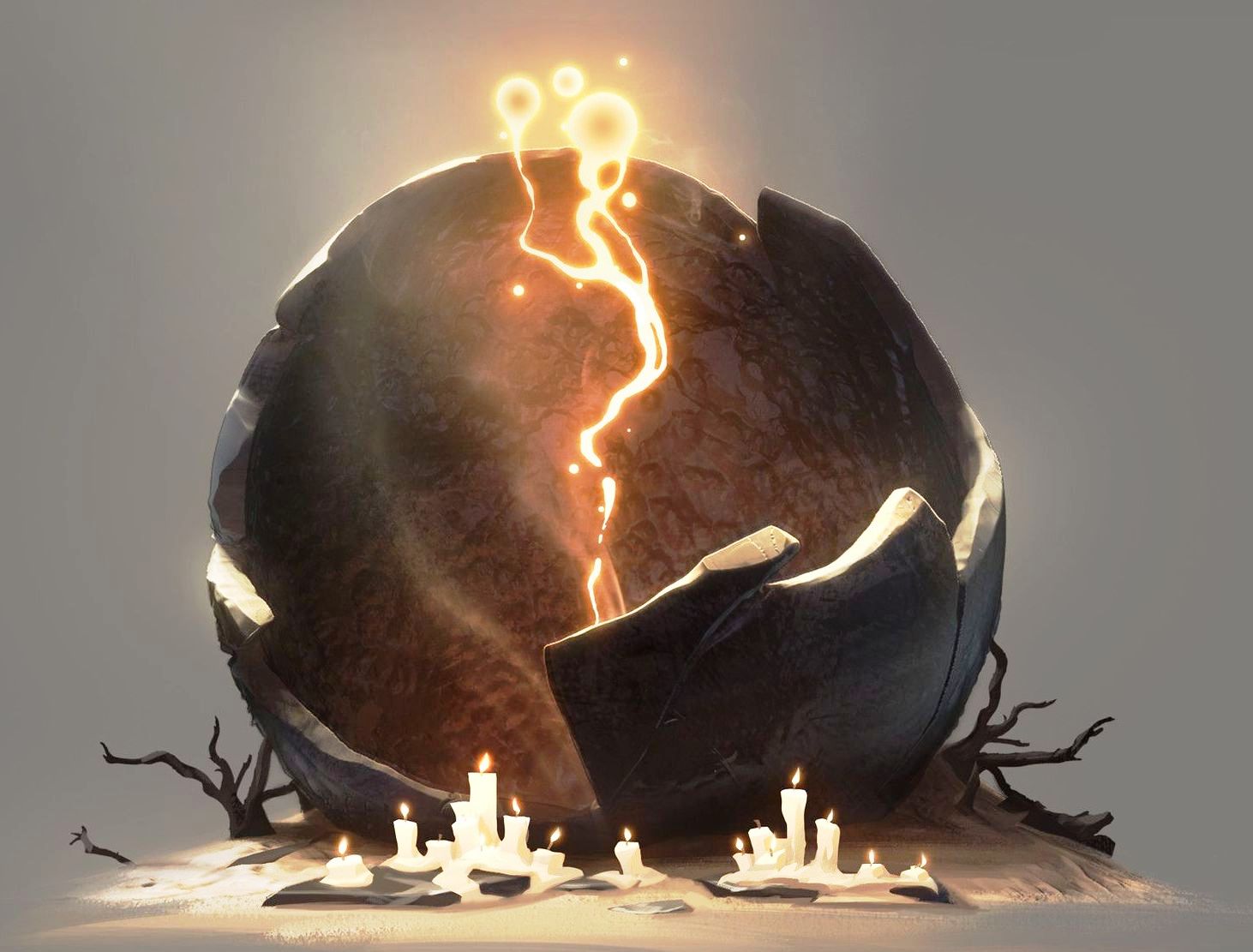Difference between revisions of "Shatter (spell)"
Tao alexis (talk | contribs) |
Tao alexis (talk | contribs) |
||
| (3 intermediate revisions by the same user not shown) | |||
| Line 12: | Line 12: | ||
}} | }} | ||
__TOC__ | __TOC__ | ||
| − | + | The dweomer breaks ordinary objects without fail, whereas magical items are given a [[Saving Throws|saving throw vs. magic]]. When it comes to lesser items, such as [[Magic Scroll|scrolls]] and [[Magic Potion|potions]], or [[Magic Armour|magical armour]] or [[Magic Weapon|weapons]] of +1, these should make their saving throws as if each were a 9th level [[Mage (class)|mage]]. For all other types of magic, the saving throw should be made as if 13th level. | |
| + | == Limitations == | ||
| + | While a substantial composite object like a [[Wagon|wagon]] might surpass the spell's size limit, yet numerous individual components within a complex structure that makes it vulnerable to attack. Stone elements within a building are far too heavy to shatter, but wooden beams or posts might be within reach for a high-level caster. The spell can be employed to rupture a plank in a ship's hull, producing a breech, though probably not [[Holing (ship damage)|large enough]] to sink a vessel. | ||
| − | + | Since internal pressure serves to generate the dweomer's effect, soft materials such as clay, leather, cloth and living plants cannot be affected by the spell. Materials must be hard, composed of sawn wood, ceramic, brick, glass, metal, mineral and the like. | |
| − | + | == Use as a Grenade == | |
| + | Objects that shatter produce an effect akin to a [[Grenade-like Missiles|grenade's]] effect. Those within a 5 ft. radius (a group of seven [[Combat Hex|combat hexes]]) of the effect are subject to 1d4 [[Hit Points|hit points]] of [[Damage (hit points)|damage]]. | ||
| − | + | Naturally, the spell can be used to shatter weapons or shields within range. If the object shatters while in the hands of a person, or upon its body, the damage taken to that creature is 2d4; this creates a shadow in the direction of the individual's body, so that the grenade-radius affects only the half-circle on that side where the blast occurred. | |
| − | |||
| − | + | If an object shatters adjacent to open [[Food|food]], then it's rendered inedible due to the random shards that result. Attempting to eat such food would cause 1d6+1 damage. Additionally, humans or demi-humans walking barefoot into an area where the shattering occurred would suffer 1 damage per hex moved through. Goblinish, orcish and most other humanoids have a tougher hide and would be unaffected were they barefoot. | |
| − | + | [[Category: Magical Spells]][[Category: Reviewed]] | |
| − | |||
| − | |||
| − | [[Category: | ||
Latest revision as of 02:34, 10 November 2023
Shatter is a spell that generates a formidable vibration capable of rupturing both mundane and enchanted items. This is so potent that it thwarts any attempts at repairing these objects through cantrips or even the mending spell. It can only affect a single item, with a maximum weight limit of 50 pounds per experience level.
| Range | 60 ft. |
| Duration | permanent |
| Area of Effect | 1 object; 50 lb. per level |
| Casting Time | 1 round |
| Saving Throw | none; see text |
| Level | mage (2nd) |
Contents
The dweomer breaks ordinary objects without fail, whereas magical items are given a saving throw vs. magic. When it comes to lesser items, such as scrolls and potions, or magical armour or weapons of +1, these should make their saving throws as if each were a 9th level mage. For all other types of magic, the saving throw should be made as if 13th level.
Limitations
While a substantial composite object like a wagon might surpass the spell's size limit, yet numerous individual components within a complex structure that makes it vulnerable to attack. Stone elements within a building are far too heavy to shatter, but wooden beams or posts might be within reach for a high-level caster. The spell can be employed to rupture a plank in a ship's hull, producing a breech, though probably not large enough to sink a vessel.
Since internal pressure serves to generate the dweomer's effect, soft materials such as clay, leather, cloth and living plants cannot be affected by the spell. Materials must be hard, composed of sawn wood, ceramic, brick, glass, metal, mineral and the like.
Use as a Grenade
Objects that shatter produce an effect akin to a grenade's effect. Those within a 5 ft. radius (a group of seven combat hexes) of the effect are subject to 1d4 hit points of damage.
Naturally, the spell can be used to shatter weapons or shields within range. If the object shatters while in the hands of a person, or upon its body, the damage taken to that creature is 2d4; this creates a shadow in the direction of the individual's body, so that the grenade-radius affects only the half-circle on that side where the blast occurred.
If an object shatters adjacent to open food, then it's rendered inedible due to the random shards that result. Attempting to eat such food would cause 1d6+1 damage. Additionally, humans or demi-humans walking barefoot into an area where the shattering occurred would suffer 1 damage per hex moved through. Goblinish, orcish and most other humanoids have a tougher hide and would be unaffected were they barefoot.
